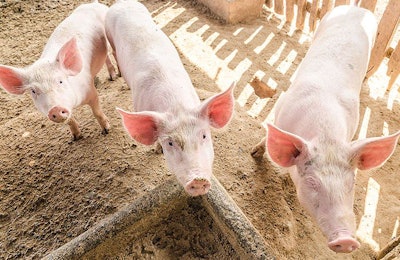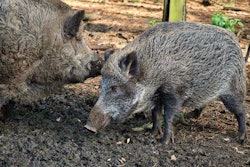
Exercises meant to identify weak points in response plans
The United States Department of Agriculture’s (USDA) Animal and Plant Health Inspection Service (APHIS) and officials from 14 states are participating in exercises targeting African swine fever (ASF) response and mitigation.
The series of functional exercises and drills are being carried out this week in the top 14 swine-producing states: Illinois, Indiana, Iowa, Kansas, Michigan, Minnesota, Missouri, Nebraska, North Carolina, Ohio, Oklahoma, Pennsylvania, South Dakota and Texas. The USDA said the exercises are “designed to be unique activities targeting key areas of ASF response and mitigation.”
The general focus of each day’s play is:
- Day 1: Conduct a foreign animal disease investigation and subsequent coordination and engagement of the National Veterinary Services Laboratory’s Foreign Animal Disease Diagnostic Laboratory and the appropriate laboratories in the National Animal Health Laboratory Network.
- Day 2: Respond to and support a state, regional or national movement standstill depending upon swine populations infected.
- Day 3: Implement the planning and resource coordination associated with depopulating and disposing of infected and exposed swine.
- Day 4: Implement a system to allow continuity of business for non-infected operations within a Control Area.
“Everything in this type of exercise is done for a reason,” said Dave Pyburn, senior vice president of the National Pork Board’s science and technology department. “We’re trying to create a realistic scenario of a confirmed foreign animal disease in this country to see how each stakeholder reacts and to find the gaps that need more work.”
ASF risk in the United States
ASF has not been confirmed in pigs in the U.S., but has been spreading throughout Asia and Europe for more than a year. According to Scott Dee, director of research, Pipestone Veterinary Services, it’s quite possible the virus is on U.S. soil, but has not yet infected any pigs.
“I think African swine fever virus entering the United States through contaminated feed is a daily risk,” Dee said August 28 during the webinar, “African Swine Fever Update,” sponsored by Kemin and hosted by WATT Global Media. “It hasn’t happened yet, as far as jumping into pigs, but based on the survival data in feed, and the amount of materials that we import from China of this high-risk nature, I’m quite certain that the virus has entered the country. It just has not yet jumped into pigs.”
The National Pork Board warns an ASF outbreak in the U.S. would devastate the country’s pork industry.
“If (a foreign animal disease) such as ASF entered the U.S., it would likely eliminate this entire valuation to zero for an unknown amount of time, which is why taking steps to prevent it from occurring require immediate action,” the National Pork Board said.
View our continuing coverage of the African swine fever outbreak.

















